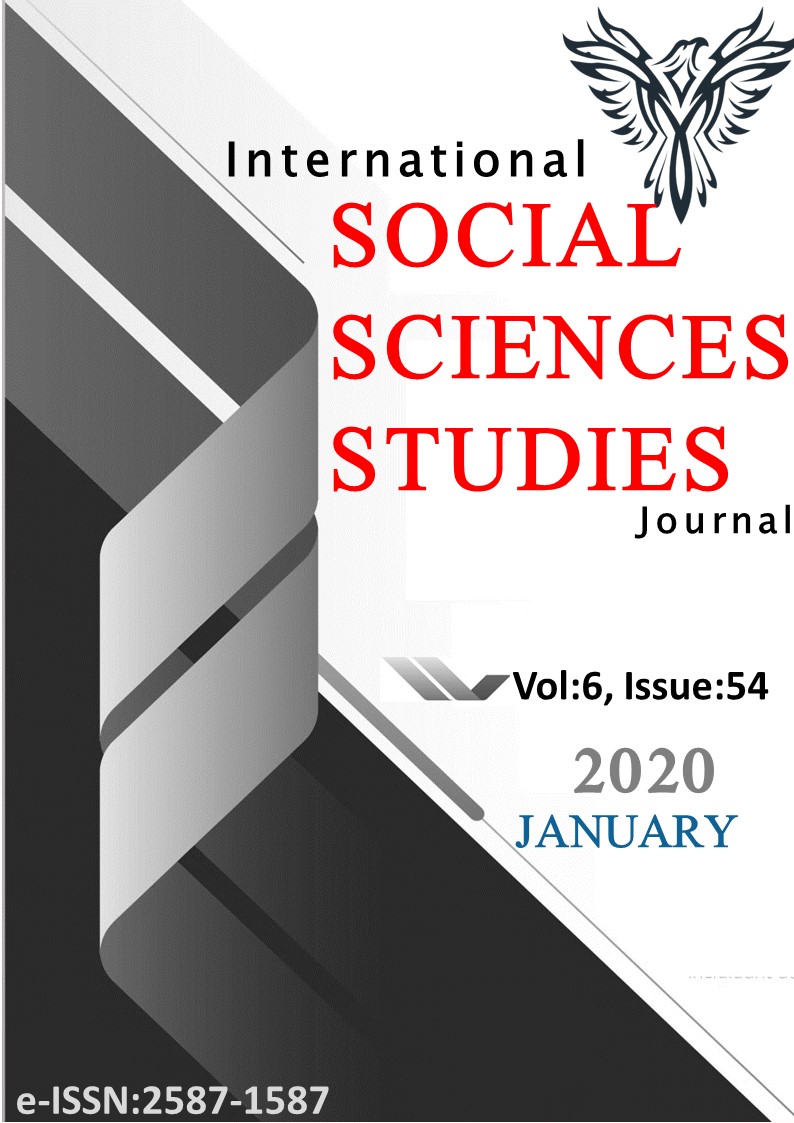Author :
Abstract
Mısır’da 1940’lı yıllarda edebiyata damgasını vuran realizmin yansıtma kuramıyla gündemin nabzını tutan edebiyat, postmodern dünya görüşüyle şekillenen yeni roman tarzlarında da toplumsal sorunlara odaklanmaya devam etmiştir. Modern bilgi formları, rasyonalite ve toplumsal kurumların iktidar ya da baskı kurma aracı olarak şekillendiği, medyanın “devletin ideolojik aygıtı” olarak işlevselleştiği ve her yönüyle denetlenen bir toplumsal yapının ortaya çıktığı tezi üzerine yükselen distopik roman, geleceğe yönelik tasarlanan dünyada kötüye odaklanan roman türünün adı olmuştur. Besme Abdulazîz’in 2013 yılında kaleme aldığı et-Tâbȗr (Kuyruk) adlı romanı bürokrasiyle kuşatılmış bir toplumu hikâye ederken, hegemonya, kontrol mekanizmaları, kimlik kaybı, teknoloji gibi distopik romanın eleştiri unsurlarını da ihtiva eder. Söz konusu çalışma Mısır edebiyatında bu tarzın ilk örneklerinden olan romanı bahsi geçen unsurlar etrafında incelemeyi hedeflemektedir.
Keywords
Abstract
The reflection theory of realism left its mark on Egyptian literature in 1940s. Literature, which is on the pulse of the agenda, continued to focus on social problems in new novel styles shaped by the postmodern worldview. The dystopian novel that emerged upon the thesis that modern information forms, rationality and social institutions were shaped as tools of power or oppression, that the media became functional as the ide ideological apparatus of the state ve and that a controlled social structure emerged in all aspects, became the name of the type of novel focusing on the future. . Besme Abdulazîz's novel Et-Tâbȗr (The Queue), which he wrote in 2013, tells the story of a society surrounded by bureaucracy, and he includes critique elements of dystopic novels such as hegemony, control mechanisms, loss of identity and technology. This study aims to examine the novel which is one of the first examples of this genre in Egyptian literature around the mentioned elements.
Keywords
- Çelinlioğlu, A. (2020). “XXI. Yüzyıl Mısır Edebiyatında Distopik Romana Bir Örnek: Besme Abdulazîz’in Et-Tâbûr Romanı”,
- International Social Sciences Studies Journal, (e-ISSN:2587-1587) Vol:6, Issue: 54; pp:35-41 XXI. YÜZYIL MISIR EDEBİYATINDA DİSTOPİK ROMANA BİR ÖRNEK: BESME ABDULAZÎZ’İN ET-TÂBÛR ROMANI An Example Of Distopic Novel In Egyptian Literature In The 21st Century: Besme Abdulaziz’s Et-Tabur Dr. Öğr. Üyesi. Asiye ÇELENLİOĞLU Fatih Sultan Mehmet Vakıf Üniversitesi, Eğitim Fakültesi, Arapça Öğretmenliği Bölümü, İstanbul/TÜRKİYE ORCID ID: https://orcid.org/0000-0003-3197-592X ÖZET Mısır’da 1940’lı yıllarda edebiyata damgasını vuran realizmin yansıtma kuramıyla gündemin nabzını tutan edebiyat, postmodern dünya görüşüyle şekillenen yeni roman tarzlarında da toplumsal sorunlara odaklanmaya devam etmiştir. Modern bilgi formları, rasyonalite ve toplumsal kurumların iktidar ya da baskı kurma aracı olarak şekillendiği, medyanın “devletin ideolojik aygıtı” olarak işlevselleştiği ve her yönüyle denetlenen bir toplumsal yapının ortaya çıktığı tezi üzerine yükselen distopik roman, geleceğe yönelik tasarlanan dünyada kötüye odaklanan roman türünün adı olmuştur. Besme Abdulazîz’in 2013 yılında kaleme aldığı et-Tâbȗr (Kuyruk) adlı romanı bürokrasiyle kuşatılmış bir toplumu hikâye ederken, hegemonya, kontrol mekanizmaları, kimlik kaybı, teknoloji gibi distopik romanın eleştiri unsurlarını da ihtiva eder. Söz konusu çalışma Mısır edebiyatında bu tarzın ilk örneklerinden olan romanı bahsi geçen unsurlar etrafında incelemeyi hedeflemektedir. Anahtar Kelimeler: Mısır, Roman, Distopik, Hegemonya, Eleştiri





